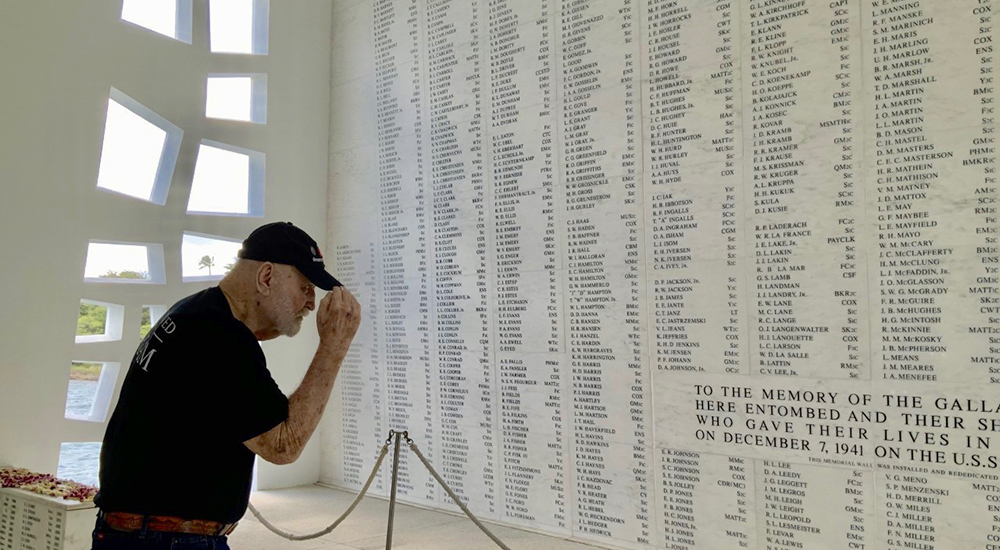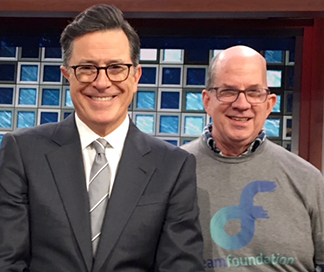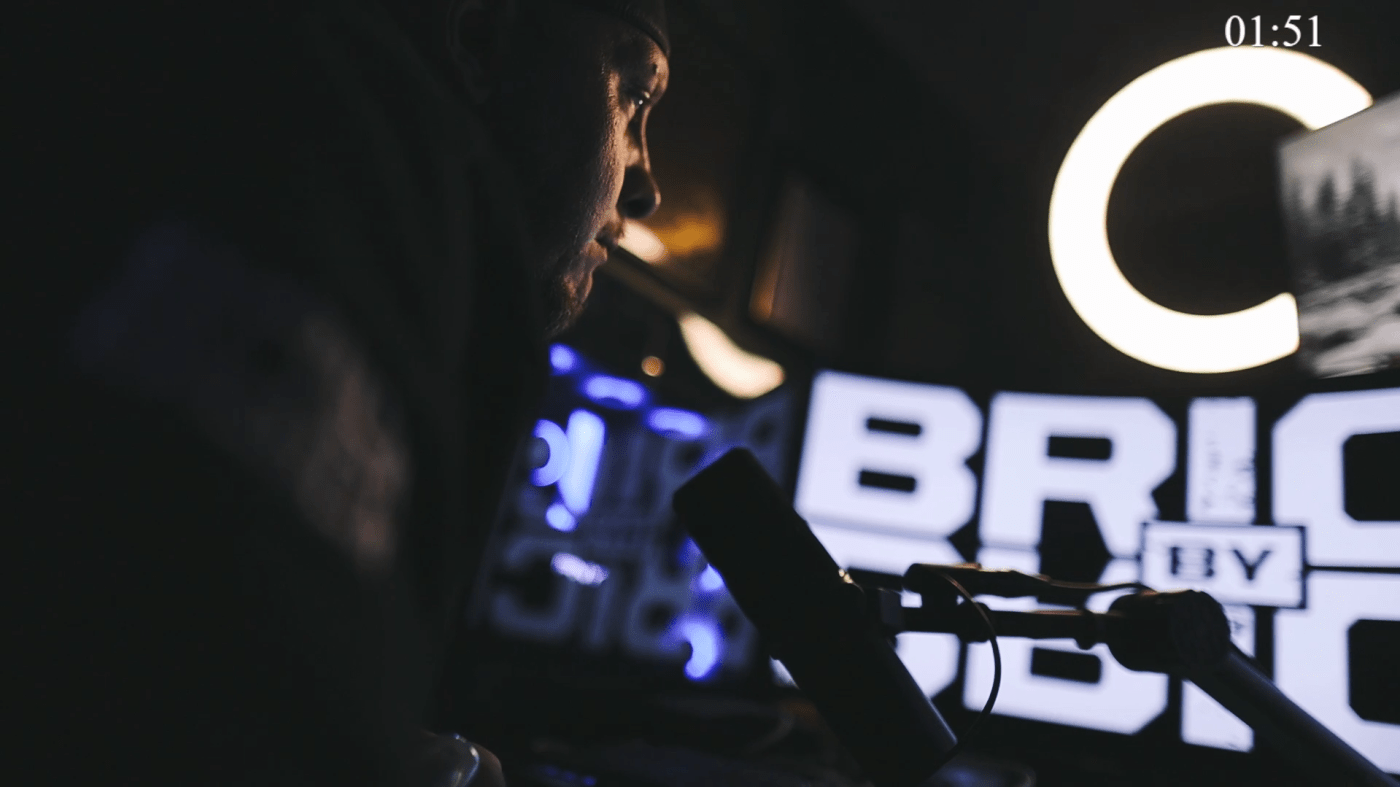For the past 26 years, Dream Foundation has been making the final dreams of terminally ill adults come true. Its Dreams for Veterans program launched in 2015, allowing VA social workers and VA Voluntary Service partnering organizations to submit referrals for dream recipients.
“There are some restrictions today on the kinds of dreams we can fulfill,” says Barbara Schoch, vice president of programs for the Dream Foundation. “But Veterans still need our help at the end of their lives and we are still here for them.”
Dreams come in many forms. Veterans’ dreams often share one characteristic that separates them from the hundreds of applications sent to Dream Foundation every year. While many civilians and Veterans ask for travel or trips so they and their families can get away from it all, some Veterans want to travel to or return to places that relate to their military service.
Visit sites where they have served
Having seen the rusted hull of the USS Arizona at Pearl Harbor in 1955, Eddie’s final dream was to visit the USS Arizona Memorial in Hawaii to salute and pay homage to the sailors lost in the attack on Pearl Harbor. His dream was fulfilled, as shown in the photo above.
“Dreams offer inspiration, comfort and closure,”Schoch said. We find that many Veterans ask for dreams that will bring them closure around aspects of their military service. That is just one of the things that makes their dreams unique.”
Dream Foundation also works with VA to arrange special pinning ceremonies honoring Veterans for their service. These are often attended by other Veterans and those still on active duty.
Current restrictions have put many dreams on hold. It temporarily rules out visits to memorials that require air travel or gatherings for pinning ceremonies.
Devices available for virtual visits
Schoch said that “Veterans with compromised immune systems are encouraged to continue to self-isolate or restrict contact with people. We can provide devices such as tablets, laptops or smartphones that allow them to speak face to face with loved ones and friends whenever they want.”
While technology can’t replace face-to-face human contact, Schoch believes that it’s the next best thing to providing a sense of caring, belonging and being together. “We’re also seeing that these devices help the entire medical team connect with patients, enhancing aspects of their care at this crucial time.”
Dream Foundation is also able to provide catered meals or money so that dream recipients can order food during this time or have an online lunch date with a loved one via a device provided by the foundation. “We have helped with a number of weddings or vow renewals for Veterans. And we’d love to help arrange a virtual ceremony.”
Virtual meet and greets
The foundation can also still arrange virtual meet and greets with heroes or gift baskets of signed memorabilia. Navy Veteran Matthew was a great admirer of Stephen Colbert’s work and had recently discovered that the two had many personal connections. He was eager to share these stories.
Dream Foundation arranged for Matthew to meet with Colbert on the set of Colbert’s The Late Show. “Matthew was absolutely thrilled to meet face to face, sharing with us that it was a Dream Come Tru,” Schoch added.
She continued: “Many of us are waiting for life to return to normal, but our terminally ill Veterans don’t have the luxury of time. To them we say we are here for you. Whatever your dream, don’t wait to apply. Talk to us now.”
To learn more, contact Susan Shelton, LCSW, ACSW, DCSW and National Project Lead for the National Office of Social Work at Susan.Shelton2@va.gov.
Dani Cordaro is a public relations consultant with the Dream Foundation. Sabrina Clark, Ph.D., is director of VA Voluntary Service.
Topics in this story
More Stories
Brick by Brick Vets, an online gaming organization for Veterans, is hosting Q&A sessions with VA experts on Twitch.
Bob Jesse Award celebrates the achievements of a VA employee and a team or department that exemplifies innovative practices within VA.
The Medical Foster Home program offers Veterans an alternative to nursing homes.







